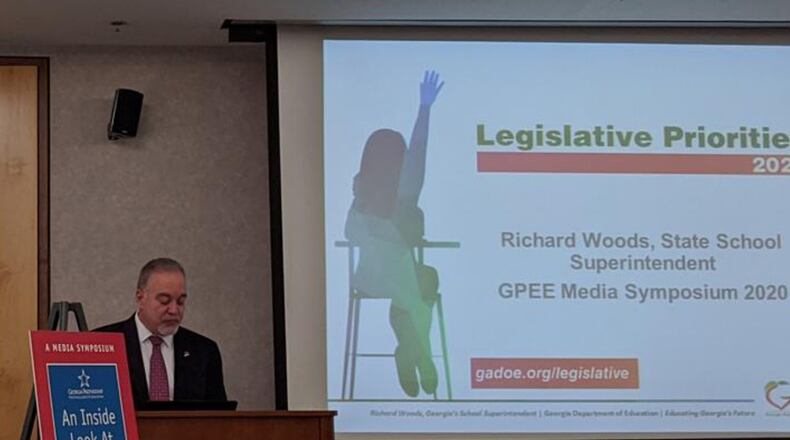School districts across Georgia could see financial help for their rising school bus expenses, but it would likely cost them in other ways.
With the 2020 legislative session set to begin Monday, State school Superintendent Richard Woods said he will advocate for changes to the state education funding formula to give schools more money for transportation.
Though overall school funding has grown in recent years, money for busing has not. School districts, meanwhile, have struggled with rising costs, leading them to divert money from the classroom in order to keep aging fleets rolling.
>> Past move to cut taxes may mean rough session for Georgia lawmakers
Since 2000, state school transportation funding has fallen by nearly $26 million, settling at $135.4 million last year, said Stephen Owens, an analyst with the Georgia Budget & Policy Institute. Districts’ costs, meanwhile, have more than doubled, from $385.5 million in 2000 to $945.7 million last year.
“This budget item is killing our districts,” Owens said.
Additional funding for education is unlikely in a year when Gov. Brian Kemp is calling for budget cuts, though.
That is why Woods will call for “tweaks” to the state’s funding formula rather than growth in the budget. Moving money around would not require more overall funding, he said. This means that if such a change were to go through, schools could see less funding in other areas.
Similarly, Woods said he would advocate for more counselors in schools, but, as with a transportation increase, it would likely come at a cost elsewhere in the state’s education budget. He said he would also push for alternatives, such as asking state colleges to help high school counselors with higher education advisement.
One area will be targeted for cuts: dual enrollment.
The popular program has outpaced the state's ability to pay.
Woods, who was speaking Friday at a symposium hosted by the Georgia Partnership for Excellence in Education, said some courses may be eliminated and the program may be restricted to students most likely to succeed.
“We don’t want to put them in a setting that sets them up for failure,” he said.
Cuts would likely hurt rural students most, since rural school districts have a harder time recruiting teachers for Advanced Placement courses. That causes more students to seek dual enrollment courses at local colleges.
More than two-thirds of rural students lack access to an AP class, said Chris Clark, president and CEO of the Georgia Chamber of Commerce.
“So where else are they supposed to go if they want to get college ready,” he said. “Dual enrollment becomes their AP class.”
Even so, Clark said dual enrollment has “problems.” He thinks the costs can be contained by restricting offerings to only “core” courses.
Kemp has so far insulated the overall state education budget from his cuts, but lawmakers expect money issues to dominate this year’s legislative session.
“I think the biggest issue this year is going to be funding,” Sen. P.K. Martin, R-Lawrenceville, chairman of the Senate Education and Youth Committee, said at the symposium.
About the Author
Keep Reading
The Latest
Featured




